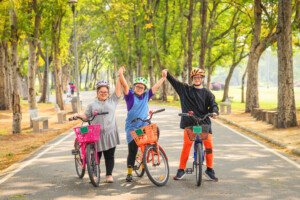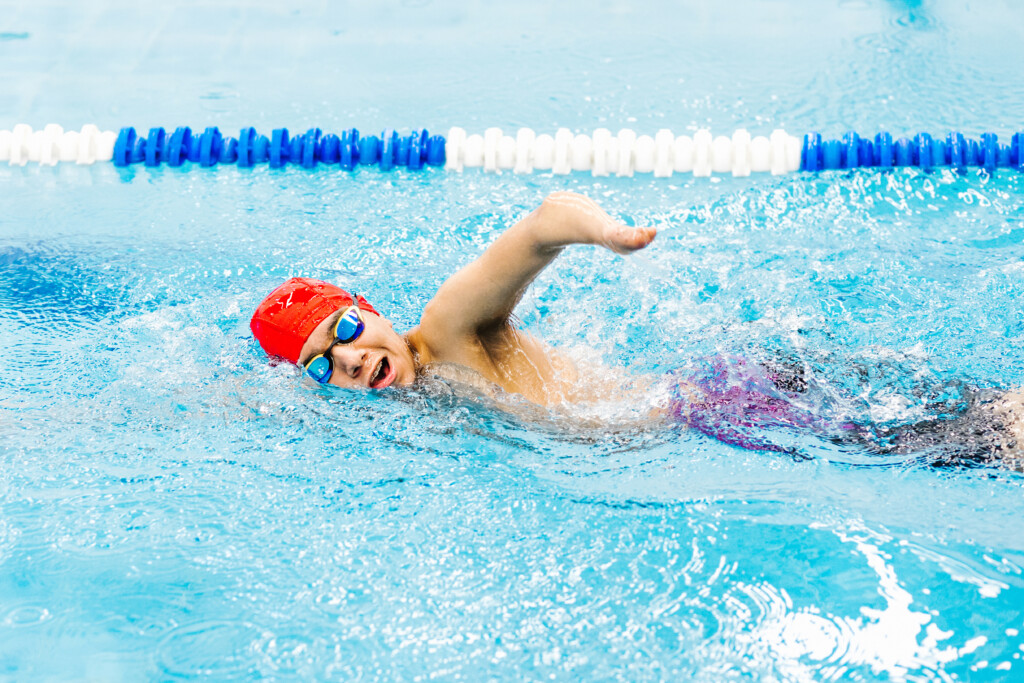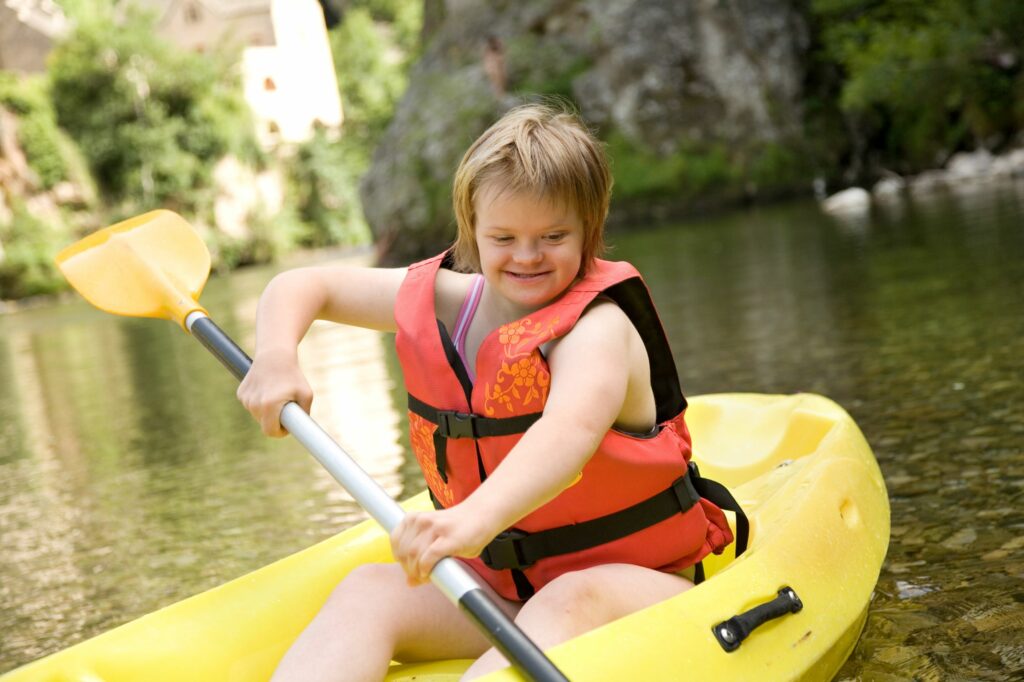
Belonging has been understood in many ways across lived experiences and fields of study. The sense of belonging, or lack thereof, can feel different for everyone. Carter (2021) explored 10 dimensions of belonging described by people with intellectual and developmental disabilities (IDD) finding that “belonging is experienced when people are present, invited, welcomed, known, accepted, supported, heard, befriended, needed, and loved.”
Recently, researchers have begun to recognize and examine belonging as a more fruitful construct than social inclusion for studying and evaluating engagement of young adults with intellectual and developmental disabilities in community life. A sense of belonging and engagement in community life have both been found to be associated with organized sport participation for young adults with intellectual and developmental disabilities. However, researchers have not yet examined in-depth how belonging is experienced and pathways to finding belonging through organized sport participation, from the perspectives of young adults with IDD themselves.
Research about organized sport participation for young adults with IDD has focused primarily on their enjoyment and social opportunities in the context of organized sport participation, like the Special Olympics organizational structure. We took this research to the next step by investigating how organized sport participation may act as a vehicle for fostering a sense of belonging which may also extend into other aspects of community life, such as social relationships, volunteering, and paid work.
The Sport and Belonging project

The Sport and Belonging project aims to address the needs that researchers and Special Olympics Ontario have in common. We need more in-depth knowledge about how young adults with IDD find belonging through organized sport participation, from their own perspectives. Knowledge like this could contribute significantly by:
a) Offering a more complex, nuanced understanding of their sense belonging and engagement in community life through organized sport participation;
b) Illuminating how they find that sense of belonging; and
c) Informing development and enhancement of Special Olympics Ontario policy and programs, as well community sport programs, and development outcome measures related to organized sport participation and belonging for these young adults.
Special Olympics was founded in the late 1960s with the goal of helping people with Intellectual Disabilities improve the quality of their lives through sport. It also helps athletes through other methods such as the Healthy Athletes program, which provides free medical checkups and health screenings. Another example is the Athlete Leadership programs that help athletes become spokespeople and role models. Special Olympics is an international non-profit with several national and provincial chapters, including Special Olympics Ontario.
The Sport and Belonging project aims to nurture a partnership between Special Olympics Ontario and the University of Toronto to collaboratively accomplish these overarching, mutually beneficial objectives to:
1. Examine how young adults with IDD experience belonging (and not) through organized sport participation
2. Understand the complex pathways to belonging within Special Olympics contexts and other community contexts.
3. Create and disseminate Knowledge Translation (KT) materials and host KT events based on the research findings that will be applicable to the work and programs of Special Olympics Ontario and other sport organizations and contexts and guide future studies about sport participation and belonging for disabled young adults.
What we learned
We individually interviewed 20 SOO athletes (19-36 years; 10 males, 10 females) from the Greater Toronto Area who had been active participants in Sport Olympics Ontario sport programs for at least a year. The semi-structured, audio-recorded interviews conducted via Zoom focussed on 4 points in each athlete’s Special Olympics journey (before joining, when joining, now, and future plans and aspirations). Then we thematically analyzed the transcribed interviews to identify 3 key themes, each with associated sub-themes, showing how athletes find a sense of belonging through . Each theme, together with the sub-themes it embodies, is summarized below.
Theme 1 is support from loved ones during sport participation. Loved ones can be defined as important people in their lives (for example, family members and close friends) who support and encourage the athlete to partake in sport. Their support has 3 aspects related to finding belonging by:
- Motivating athletes to make social connections
- Cheering them on and encouraging them during games and practices
- Fostering interest of their young adults in physical activity and sport
Theme 2, being part of the team, is developed through 2 processes: building trust and friendship with a team and reaching achievements together through healthy competition. This was facilitated through feelings of respect, celebration of sportsmanship and accomplishment, appreciation of athletic skill among athletes, and feelings of confidence and leadership instilled through participating in sports.
Theme 3, opportunities to discover and develop athletes’ own interests, are offered in 2 ways: having an inclusive place to pursue their passions and receiving constructive feedback from their coaches to help them develop and improve their skills and sense of confidence. This leads to increased confidence in sport and self and the reframing the personal meaning of disability (e.g. helps athletes belong as it reduces internalized ableism and builds confidence).
Concluding comments or conclusion

This research advances our understanding of and contributes new knowledge about how young adults with IDD find a sense of belonging through their participation in organized sport. Since researchers do not often look for the views of young adults with IDD, especially concerning complex issues like finding belonging, this new knowledge is also valuable because it reflects the perspectives of these young adults themselves.
The findings, as summarized by the 3 themes noted above, highlight that the pathways for finding belonging through organized sport participation are shaped by mutual processes that involve key roles played by:
- Important people in the lives of young adults (Theme 1)
- Young adults themselves (Theme 2)
- Their coaches (Theme 3)
Acknowledgements
Thank you to our research participants and our Sport and Belonging research team members. We would also like to thank the Connaught Foundation, University of Toronto for funding this multi-year research project.